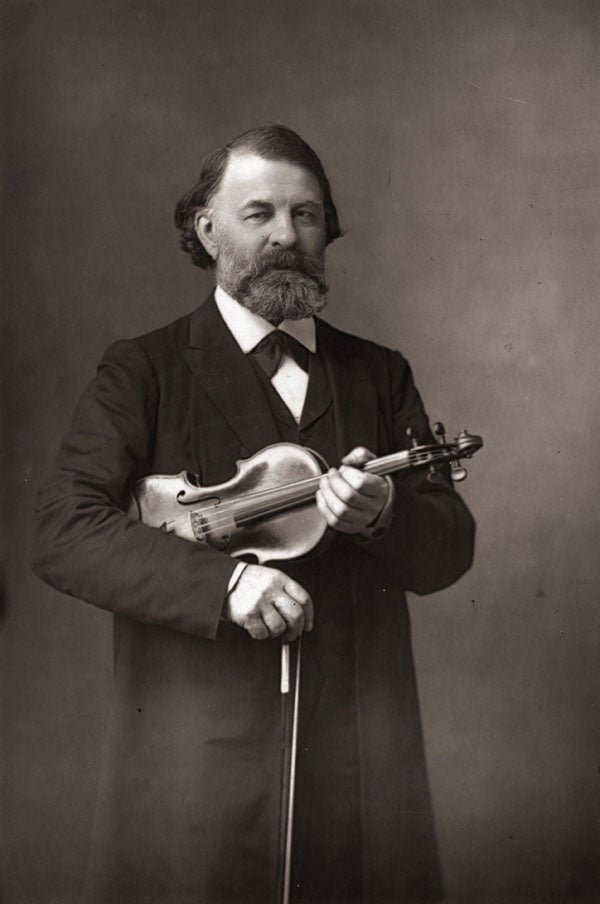New CD celebrates Joseph Joachim, lynchpin of music-making in the Romantic era

Your support helps us to tell the story
From reproductive rights to climate change to Big Tech, The Independent is on the ground when the story is developing. Whether it's investigating the financials of Elon Musk's pro-Trump PAC or producing our latest documentary, 'The A Word', which shines a light on the American women fighting for reproductive rights, we know how important it is to parse out the facts from the messaging.
At such a critical moment in US history, we need reporters on the ground. Your donation allows us to keep sending journalists to speak to both sides of the story.
The Independent is trusted by Americans across the entire political spectrum. And unlike many other quality news outlets, we choose not to lock Americans out of our reporting and analysis with paywalls. We believe quality journalism should be available to everyone, paid for by those who can afford it.
Your support makes all the difference.The British violinist Daniel Hope is setting out to restore Joseph Joachim (1831-1907) to his rightful place as the lynchpin of music-making in the Romantic era, with a new CD entitled The Romantic Violin. And it's not a moment too soon, for some of the 19th century's crucial musical developments revolved around this violinist and composer.
The child prodigy was mentored by Mendelssohn, who conducted a performance of the Beethoven Violin Concerto in which Joachim, aged 13, was the soloist. "Without that performance, the concerto might have disappeared," says Hope.
Liszt, then honorary kapellmeister to the court in Weimar, persuaded the still teenage violinist to become leader of his orchestra in 1848.
Then Joachim famously provided the 20-year-old Johannes Brahms, with a letter of introduction to Robert and Clara Schumann, a meeting that profoundly affected the course of Brahms's life and music. But just before that, Brahms went to see Joachim and Liszt in Weimar. When Liszt played his B minor sonata to his assembled students, Brahms fell asleep.
What ensued was the so-called War of the Romantics, which split the aesthetic of new music in Europe. Liszt, Wagner and their followers determined to create "the music of the future", while Brahms, Joachim and Clara Schumann deplored such iconoclasm and its showiness.
"If Joachim had not split with Liszt the Liszt Violin Concerto would not have been forgotten; and there might have been one by Wagner. Instead, we have Brahms, Schumann, Dvorak, Bruch...", says Hope.
'The Romantic Violin' is out on Deutsche Grammophon on Monday
Join our commenting forum
Join thought-provoking conversations, follow other Independent readers and see their replies
Comments